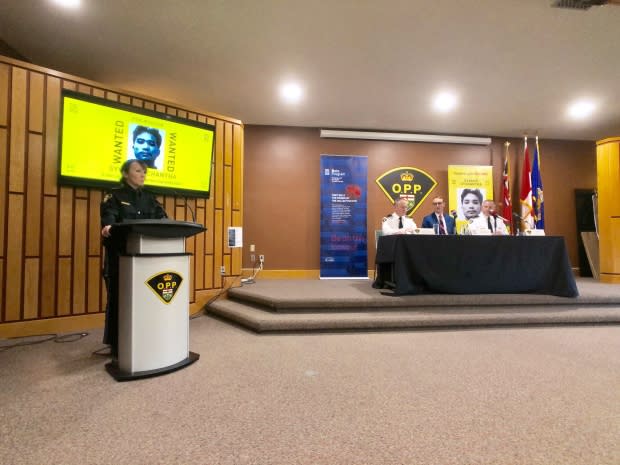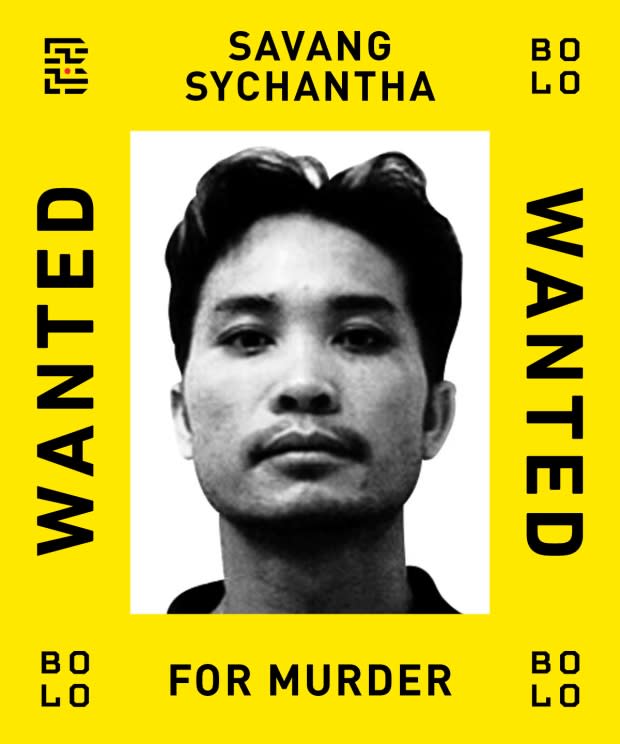OPP partner with Bolo Program to help solve 'most wanted' case
Provincial police are hoping a new public safety innovation project will lead to an arrest in a long-standing homicide investigation. The Bolo Program, which stands for 'be on the lookout,' launched in Toronto back in May. It uses social media and technology to amplify police requests for the public's help in locating major crime suspects.
"In this case, the Bolo Program approached the provincial police because they were launching and they were relatively a young program," said Detective Inspector Randy Wright. The OPP's first foray into using the new program will be to locate a suspect wanted for first-degree murder in a case dating back to 2002.

The case
Eighteen-year-old Riad Boroud was taken by force in Windsor, Ont. and bound, restrained and beaten to death on Apr. 22, 2002, police say.
His remains were discovered three days later by a road grader operator in an area off the 401 near Chatham-Kent. The suspect wanted in the case is 56-year-old Savang Sychantha.
Police say he fled the country to Laos after the murder, but a tip led them to believe he is back in Canada and could be living under an alias is Toronto, Montreal or Vancouver.
In 2008, police issued a $50,000 reward for information that would lead to Sychantha's arrest.
How the new program can help police
As part of the Bolo Program, Sychantha's name and face will be amplified to areas where police believe he may be hiding.
"What they can do for us now, and why we thought it would be a good pairing, is that they can amplify this all over the world for us," said Wright.
"They will now target the areas that we may think that he is, or the information that we received in the past about where he is."
Wright says the program can broadcast information to a larger audience than police could previously reach.

"Our main objective is to make sure that Canadians are on the look out for the most wanted suspects in our country," said Maxime Langlois, director of the Bolo Program.
"We decided to develop the right tool box, to reach people at the right time, at the right place, and using the right means. The possibilities are endless in terms of what we can do." The campaign to locate Sychantha will start with social media, but Langlois says they may also use billboards, bus shelter advertisements and flyers.
The program does not collect information.
"We're not the police. We're only here to support the police through communication to build safer communities," reads the organization's website.
The Bolo Program is fully funded by the Stephan Crétier Foundation, a charity organization established in 2006 in Montreal. There is no cost to the police for their services.
The program is currently assisting with five cases, but Langlois says they will aim for a maximum of 20 cases at a time.
"We want to stay focused, so it's important for us to have a limited number of cases," he said.
Anyone with information on the whereabouts of Savang Sychantha is being asked to call 911, the Ontario Provincial Police Director of the Criminal Investigation Branch at 1-888-310-1122 or 705-329-6111, or Crime Stoppers anonymously at 1-800-222-TIPS (8477).
Information can also be submitted online at www.222tips.com, or by texting SYCHANTHA and your message to CRIMES (274637).

